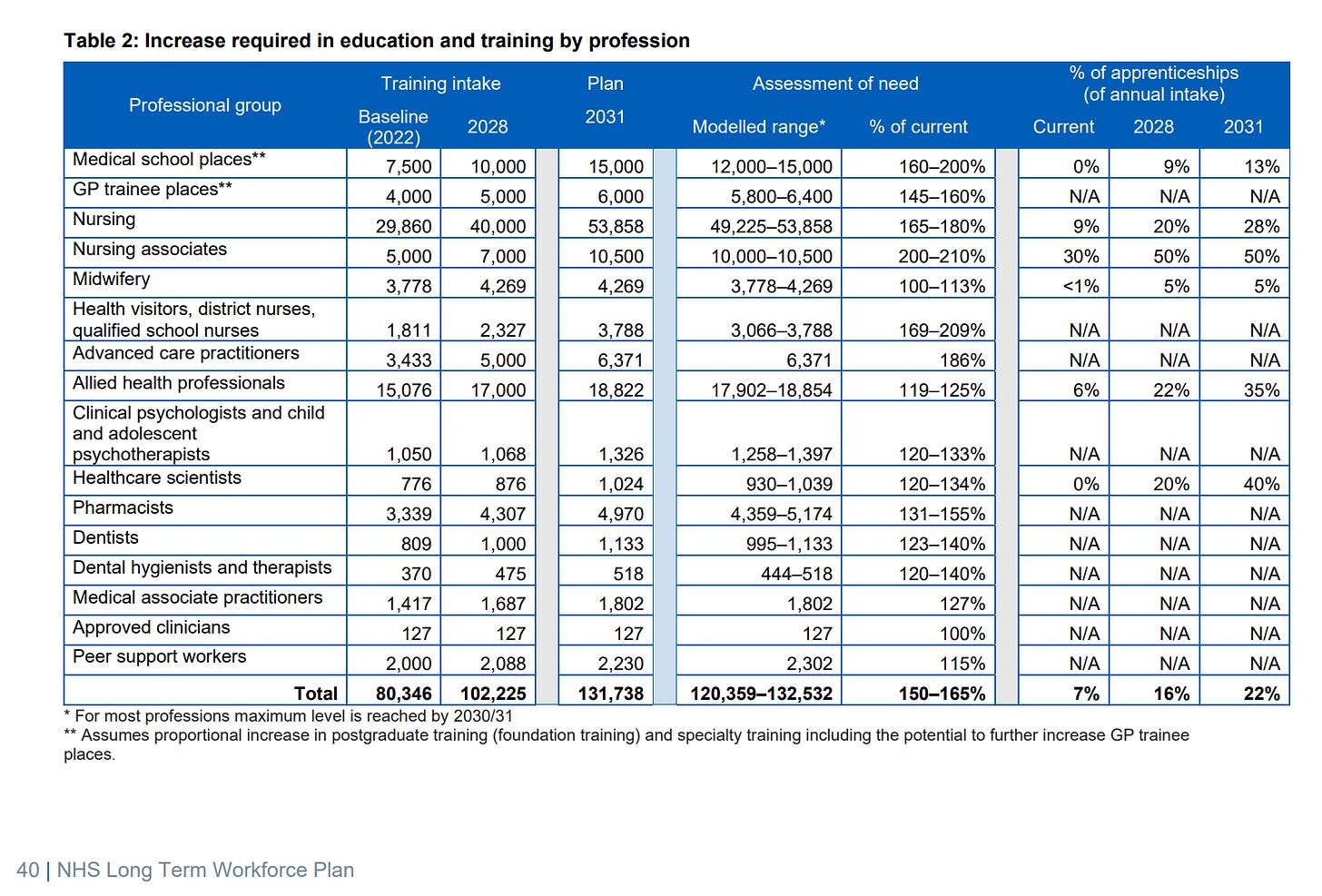The NHS Workforce Plan is (finally) here!
NHS Workforce Plan July 2023 - Video walkthrough & impressions
Join Gandhi & I as we review the long-awaited NHS Workforce plan which sets out the NHS plans for the next 15 years.
Is it any good? Find out with us in our breakdown at https://www.youtube.com/eGPlearning
Find the original document here: https://www.england.nhs.uk/publication/nhs-long-term-workforce-plan/
Show notes - NHS Workforce Plan…
Published 29 June 2023 Commissioned and accepted by the government, this costed plan addresses how NHS will meet workforce challenges over the next 15 years & with £2.4bn of funding.
The problem is significant. Staffing shortfalls have been a long-standing issue and NHS vacancies now stand at 112,000. The plan’s modelling estimates that vacancies will rise to 360,000 by 2037 if no action is taken.
Priority areas:
Train - increase numbers of staff
Retain - 130,000 existing staff
Reform - Work differently and modernise
The best chart:
Proposed increases in training places for health professionals from 2022 baselines through to 2031…
Headline features
Doubling medical school training places to 15,000 by 2031/32, with more places in areas with the greatest shortages.
Increasing the number of GP training places by 50% to 6,000 by 2031.
Almost doubling the number of adult nurse training places by 2031, with 24,000 more nurse and midwife training places a year by 2031.
Providing 22 per cent of training for clinical staff through apprenticeship routes by 2031/32 .
Introducing medical degree apprenticeships with pilots running in 2024/25 so that by 2031/32 2,000 medical students will train by this route
Training more NHS staff domestically – in 15 years’ time, we would expect around 9-10.5 per cent of the workforce to be recruited from overseas compared to nearly 25% now.
Ensuring that more than 6,300 clinicians start advanced practice pathways each year by 2031/32.
Increasing training places for nursing associates (NAs) to 10,500 by 2031/32 – by 2036/37, there will be over 64,000 nursing associates working in the NHS, compared to 4,600 today.
“Supporting” Medical Schools to offer shorter 4 year medical degree courses compared to current 5 or 6 year qualifications.
Thoughts, observations & comments:
There are no ‘specific costs’ associated with retention elements of the long-term workforce plan.
The document sets out a plan to ‘ensure up to 130,000 fewer staff leave the NHS over the next 15 years. It does mention a scheme to retain retiring consultants, consultants. however that segment of the 135-page report does not specifically mention GPs.
GP training places in England will increase by 50% to 6,000 by 2031 under the £2.4bn plan… But, who will train the new trainees and in what time?
Reducing Medical training time to 4 years may be a false economy, with newly qualified doctors requiring more support in early years from senior colleagues.
Will shorter Medical Degree courses lock people out to leaving for other countries.
Will UK Medical Schools continue to be attractive to overseas students?
Funding is confirmed to 2028? Only first 5 years are costed.
What about the social care workforce - Will there be a plan for that?
Estates? What about estates - where will the people work? How will buildings be maintained?
Wages are a factor in recruitment and retention but are considered out of scoope for this plan.
Other breakdowns and comments on the NHS Workforce Plan:
The Health Foundation - https://www.health.org.uk/news-and-comment/news/health-foundation-response-to-the-nhs-workforce



